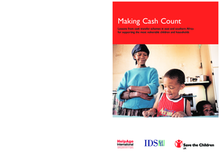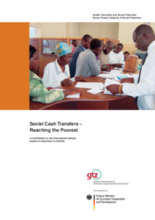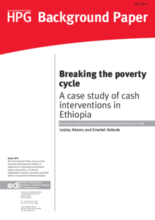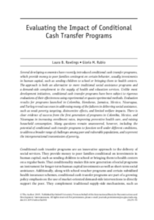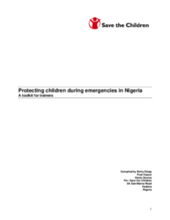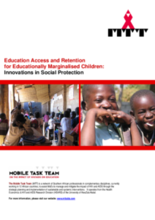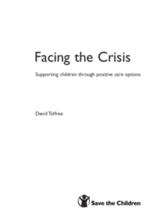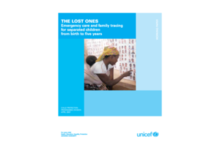Displaying 14071 - 14080 of 14579
This paper is a comprehensive examination of cash transfers in Africa and their impact on children. Case studies from Ethiopia, Zambia, Mozambique and Lesotho are discussed.
This paper explores the role and process of social cash transfers to reduce poverty and provide social protection. It examines a pilot cash transfer program in Zambia.
This paper examines the role, process and impact of cash transfer interventions in Ethiopia using several case studies. Challenges and recommendations for future cash interventions are discussed in-depth.
This paper examines the short-term impact of conditional cash transfer programs in comparison to traditional social assistance programs. Programs in Colombia, Honduras, Jamaica, Mexico, Nicaragua and Turkey are highlighted.
A comprehensive training toolkit for organizations and individuals who are directly involved in child protection and welfare during emergencies. Covers key topics related to children in emergencies, and includes learning points, classroom and field exercises, suggested itineraries and handouts.
This paper analyses the financial costs of residential services as compared to community-based services in Moldova. It also addresses the negative effects of institutional care on the well-being of children and society as a whole.
This paper provides a comprehensive contextual overview of the educational challenges faced by orphans and vulnerable children in sub-Saharan Africa. It includes recommendations for future education policy in the context of HIV and AIDS, as well as provides country specific data on current policies and social protection programs.
A paper with guidelines for keeping children with families and providing proper care and protection for them. It provides examples and plans for those interested in planning care for separated children.
A manual primarily concerned with the prevention of separation of children during emergencies. It provides a field-oriented guide to solve problems specific to emergency care and tracing and family reunification of babies and children five years and younger.
A report discussing the advent and perpetuation of institutional care in Central and Eastern Europe and the Former Soviet Union prior to and since the end of the communist regime. It also provides examples of family-based care as models of care to substitute institutional care and offers recommendations to donors, NGOs and governments for child care reform based on their experience in CEE and FSU.

